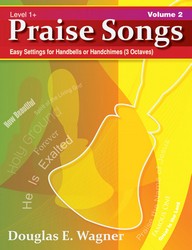- |
User Links
Spirit of the Living God

Spirit of the living God, fall afresh on me (Iverson)
Author (st. 1): Daniel Iverson (1926)Tune: IVERSON (Iverson)
CCLI Number: 23488
Published in 108 hymnals
Audio files: MIDI, Recording
Representative Text
Spirit of the Living God,
Fall afresh on me,
Spirit of the Living God,
Fall afresh on me.
Break me, melt me, mold me, fill me.
Spirit of the Living God,
Fall afresh on me.
Source: Yes, Lord!: Church of God in Christ hymnal #197
Author (st. 1): Daniel Iverson
Daniel Iverson (b. Brunswick, GA, 1890; d. Asheville, NC, 1977) wrote the first stanza and tune of this hymn after hearing a sermon on the Holy Spirit during an evangelism crusade by the George Stephens Evangelistic Team in Orlando, Florida, 1926. The hymn was sung at the crusade and then printed in leaflets for use at other services. Published anonymously in Robert H. Coleman's Revival Songs (1929) with alterations in the tune, this short hymn gained much popularity by the middle of the century. Since the 1960s it has again been properly credited to Iverson. Iverson studied at the University of Georgia, Moody Bible Institute, Columbia Theological Seminary, and the University of South Carolina. Ordained in the Presbyterian Church in 1914… Go to person page >Text Information
| First Line: | Spirit of the living God, fall afresh on me (Iverson) |
| Title: | Spirit of the Living God |
| Author (st. 1): | Daniel Iverson (1926) |
| Meter: | Irregular |
| Language: | English |
| Notes: | French translation: "Saint Esprit du Dieu vivant, entre dans mon coeur" by Moody Bible Institute; German translation: "Geist der Freude, heil'ger Geist, fall auf uns herab" by Hubertus Tommeck; Korean translation: "Sara kyeshin ju sǒng nyǒng naege ososǒ" by The United Methodist Korean Hymnal Committee; Spanish translation: Ven, Espéiritu de Dios, cae de nuevo en mi" |
| Copyright: | St. 1 © 1935, 1963 Birdwing Music (ASCAP) |
- Year A, Lent, Fifth Sunday
This is recommended for Year A, Lent, Fifth Sunday by 2 hymnal lectionary indexes including Glory to God: the Presbyterian Hymnal #288 and Lift Up Your Hearts: psalms, hymns, and spiritual songs #749. - Year A, Easter season, Day of Pentecost
This is recommended for Year A, Easter season, Day of Pentecost by 2 hymnal lectionary indexes including Glory to God: the Presbyterian Hymnal #288 and Lift Up Your Hearts: psalms, hymns, and spiritual songs #749. - Year A, Ordinary Time, Proper 10 (15)
This is recommended for Year A, Ordinary Time, Proper 10 (15) by 2 hymnal lectionary indexes including Glory to God: the Presbyterian Hymnal #288 and Lift Up Your Hearts: psalms, hymns, and spiritual songs #749. - Year B, Epiphany season, Eighth Sunday
This is recommended for Year B, Epiphany season, Eighth Sunday by 3 hymnal lectionary indexes including Lift Up Your Hearts: psalms, hymns, and spiritual songs #749. - Year B, Easter season, Sixth Sunday
This is recommended for Year B, Easter season, Sixth Sunday by 2 hymnal lectionary indexes including Glory to God: the Presbyterian Hymnal #288 and Lift Up Your Hearts: psalms, hymns, and spiritual songs #749. - Year B, Easter season, Day of Pentecost
This is recommended for Year B, Easter season, Day of Pentecost by 3 hymnal lectionary indexes including Glory to God: the Presbyterian Hymnal #288 and Lift Up Your Hearts: psalms, hymns, and spiritual songs #749. - Year B, Ordinary Time, Proper 3 (8)
This is recommended for Year B, Ordinary Time, Proper 3 (8) by 2 hymnal lectionary indexes including Glory to God: the Presbyterian Hymnal #288 and Lift Up Your Hearts: psalms, hymns, and spiritual songs #749. - Year B, Ordinary Time, Proper 9 (14)
This is recommended for Year B, Ordinary Time, Proper 9 (14) by 2 hymnal lectionary indexes including Glory to God: the Presbyterian Hymnal #288. - Year C, Epiphany Season, Transfiguration Sunday
This is recommended for Year C, Epiphany Season, Transfiguration Sunday by 2 hymnal lectionary indexes including Glory to God: the Presbyterian Hymnal #288 and Lift Up Your Hearts: psalms, hymns, and spiritual songs #749. - Year C, Easter season, Fifth Sunday
This is recommended for Year C, Easter season, Fifth Sunday by 3 hymnal lectionary indexes including Glory to God: the Presbyterian Hymnal #288 and Lift Up Your Hearts: psalms, hymns, and spiritual songs #749. - Year C, Easter season, Day of Pentecost
This is recommended for Year C, Easter season, Day of Pentecost by 2 hymnal lectionary indexes including Glory to God: the Presbyterian Hymnal #288 and Lift Up Your Hearts: psalms, hymns, and spiritual songs #749. - Year C, Ordinary Time, Proper 8 (13)
This is recommended for Year C, Ordinary Time, Proper 8 (13) by 2 hymnal lectionary indexes.
Engish
English
- African American Heritage Hymnal #320
- African Methodist Episcopal Church Hymnal #619
- All-American Church Hymnal #396
- Ancient and Modern: hymns and songs for refreshing worship #263
- Anglican Hymns Old and New (Rev. and Enl.) #675
- Baptist Hymnal (1975 ed) #136
- Baptist Hymnal 1956 #523
- Baptist Hymnal 1991 #244
- Baptist Hymnal 2008 #330
- Celebrating Grace Hymnal #234 10 shown out of 90
French
German
Korean
Spanish
Notes
Scripture References:
all st. = Acts 10:44
The composite hymn text is a prayer for the Holy Spirit to work renewal in the individual heart (st. 1) and to make these renewed people one in love and service (st. 2).
Daniel Iverson (b. Brunswick, GA, 1890; d. Asheville, NC, 1977) wrote the first stanza and tune of this hymn after hearing a sermon on the Holy Spirit during an evangelism crusade by the George Stephans Evangelistic Team in Orlando, Florida, 1926. The hymn was sung at the crusade and then printed in leaflets for use at other services. Published anonymously in Robert H. Coleman's Revival Songs (1929) with alterations in the tune, this short hymn gained much popularity by the middle of the century. Since the 1960s it has again been properly credited to Iverson.
Iverson studied at the University of Georgia, Moody Bible Institute, Columbia Theological Seminary, and the University of South Carolina. Ordained in the Presbyterian Church in 1914, he served congregations in Georgia and in North and South Carolina. In 1927 he founded the Shenandoah Presbyterian Church in Miami, Florida, and served there until his retirement in 1951. An evangelist as well as a preacher, Iverson planted seven new congregations during his ministry in Miami.
Michael Baughen (b. Borehamwood, Hertfordshire, England, 1930) added a second stanza to the text in 1980. That stanza's emphasis on the Spirit moving “among us all,” provides a necessary complement to the first stanza's focus on the Spirit's work in the individual ("fall afresh on me"). The stanzas were first published together in the British Hymns for Today's Church (1982).
Baughen was a priest in the Church of England since 1964 and Bishop of Chester from 1982 until he retired in 1996. He now lives in London. Educated at London University and Oak Hill Theological College, he served as rector of Holy Trinity, Church in Rushholme, Manchester (1964-1970), and All Saints, Langham Place, London (1970-1982). Baughen has written four books including Chained to the Gospel (1986) and The Prayer Principle (1981). He also founded the Jubilate Group and served as editor of four hymnals: Youth Praise (1966), Youth Praise II (1969), Psalm Praise (1973), and Hymns for Today's Church (1982).
Liturgical Use:
Pentecost; renewal services; profession of faith; ordination; special dedication/consecration of persons and organizations to Christian ministry; in worship services of confession/forgiveness or as a sung prayer for illumination; as a frame around the congregational prayers–sing stanza 1 at the beginning and stanza 2 at the conclusion of spoken prayers.
--Psalter Hymnal Handbook, 1988
Tune
IVERSON (Iverson)IVERSON is a simple chorus; its original melody line was altered in 1929 (see above). Southern Baptist leader Baylus B. McKinney wrote the harmony, which was published in his Songs of Victory (1937). Sing in harmony unaccompanied or accompany with organ or guitars. When used as a frame around prayer…
Timeline
Arrangements
Media
- Audio recording from Glory to God: the Presbyterian Hymnal #288
- Audio recording from Lift Up Your Hearts: psalms, hymns, and spiritual songs #749
- Audio recording from Lift Up Your Hearts: psalms, hymns, and spiritual songs #749
- Audio recording from Lift Up Your Hearts: psalms, hymns, and spiritual songs #749
- Audio recording from Lift Up Your Hearts: psalms, hymns, and spiritual songs #749
- Audio recording from Lift Up Your Hearts: psalms, hymns, and spiritual songs #749
- MIDI file from Psalter Hymnal (Gray) #424
- Audio recording from The United Methodist Hymnal #393
- MIDI file from With Heart and Voice: songs for all God's children #108


 My Starred Hymns
My Starred Hymns





